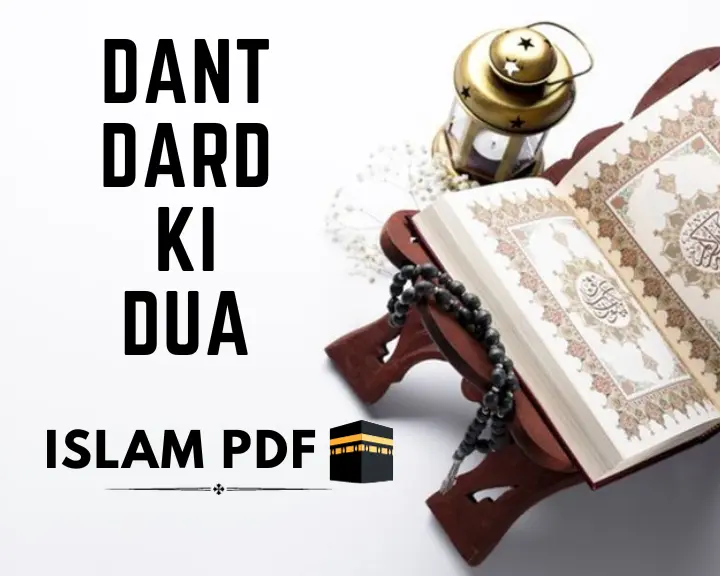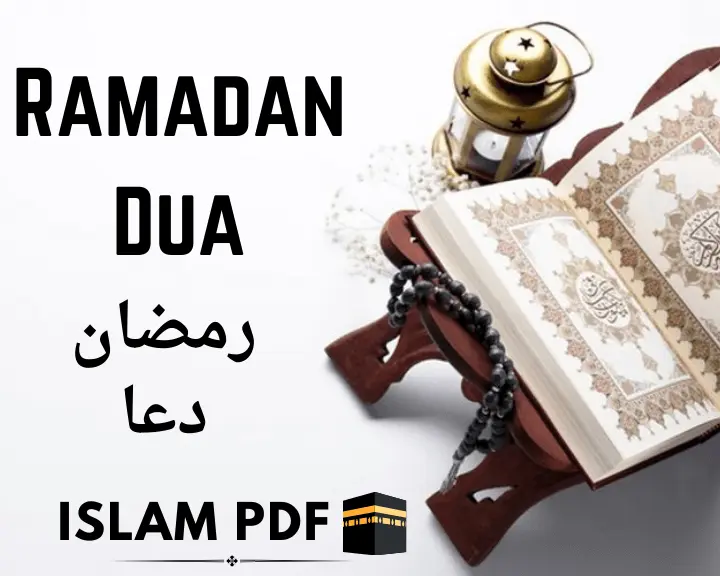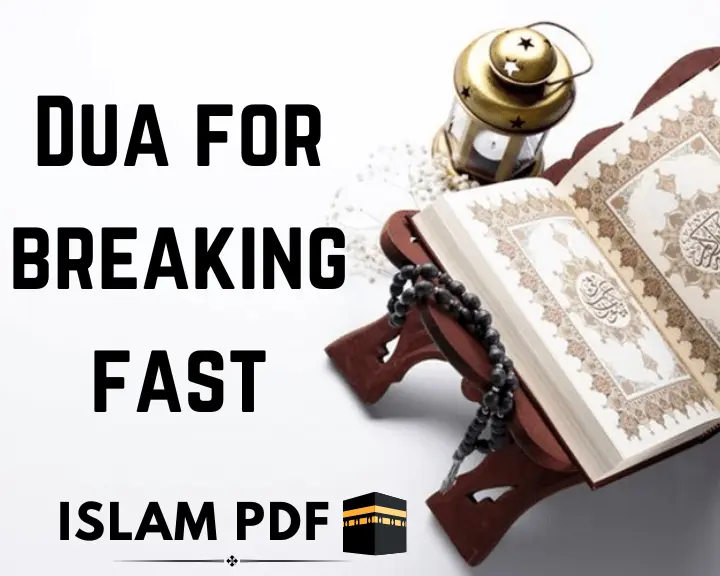Tahajjud Dua | Best Way to Perform Tahajjud Prayer
Muslims perform a very important night prayer known as Tahajjud. It is performed in the final third portion of each night, just before the pre-dawn Fajr prayer and following the mandatory Isha (night) prayer. The Arabic root “hajada,” which means “to attempt” or “make an effort,” is where the word “Tahajjud” originates.
Believers offer prayer and make Tahajjud Dua to Allah to pardon them for their sins and to thank Him for His blessings during Tahajjud. Tahajjud is performed in the early morning, which is regarded as an exceptional moment when the prayers and duas have a higher chance of being heard.
Tahajjud Dua with Urdu Translation
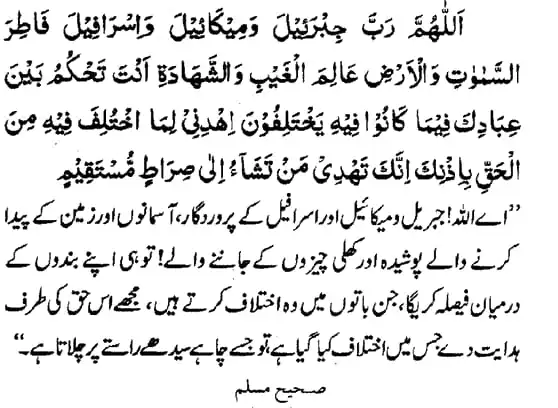
Tahajjud Dua with English Translation
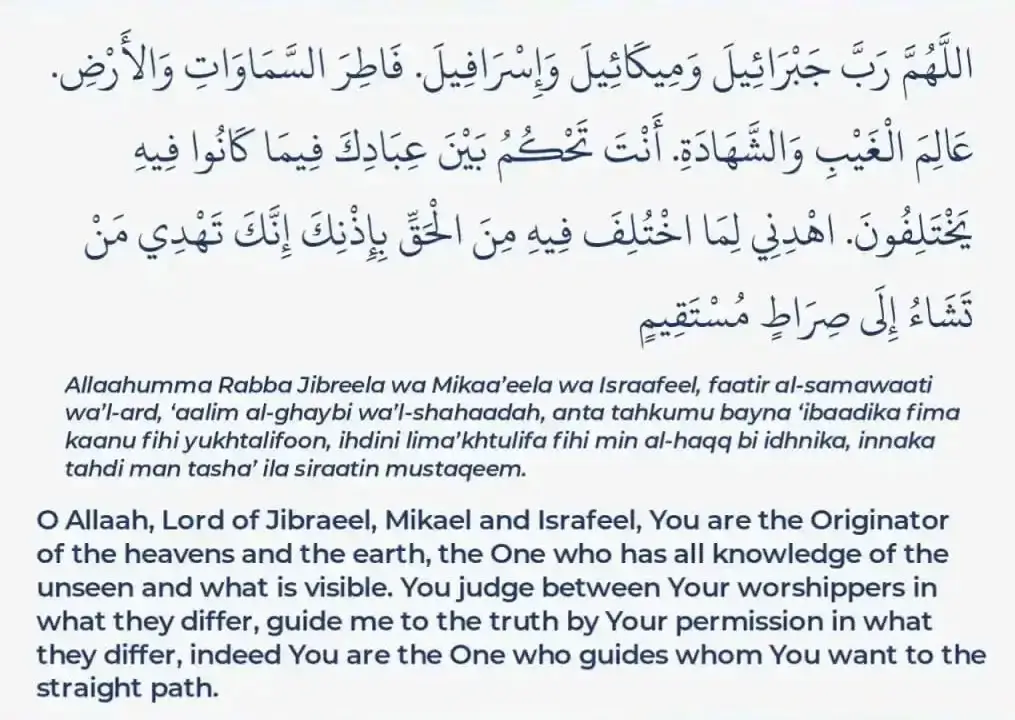
Download Tahajjud Dua Image and MP3
How to Perform Tahajjud Prayer
Tahajjud is a lenient and optional prayer with no set number of rak’ahs. Starting with an odd number (e.g., one or three), it is standard to pray rak’ahs and then continue in sets of two. Honesty, dedication, and obtaining a closer relationship with Allah are prioritized, and people are free to choose how many rak’ahs work best for them.
Benefits of Offering Tahajjud Prayer
- Being close with Allah: Creates a personal relationship with the Almighty.
- Sins Being forgiven: Allah pardons sins during the very last portion of the night.
- Enhanced Taqwa, or awareness of God: Promotes attentiveness and loyalty to Islamic teachings.
- Increasing the Faith: Increases adherence to Islamic teachings as well as iman (faith).
- Rewards and the blessings: Assures of spiritual benefits and rewards in the Afterlife.
Quranic References
Surah Al-Muzzammil (73:1-4)
“O you who wraps himself [in clothing], arise [to pray] the night, except for a little, half of it—or subtract from it a little or add to it—and recite the Qur’an with measured recitation.”
Surah Al-Isra (17:79)
“And from [part of] the night, pray with it as additional [worship] for you; it is expected that your Lord will resurrect you to a praised station.”
Surah Al-Furqan (25:64-65)
“And those who spend [part of] the night to their Lord prostrating and standing [in prayer]. And those who say, ‘Our Lord, avert from us the punishment of Hell. Indeed, its punishment is ever adhering; indeed, it is evil as a settlement and residence.'”
Hadith References
Hadith in Sahih Muslim
The Prophet Muhammad (peace be upon him) said, “In the last third of every night, our Lord, the Blessed, the Superior, descends to the nearest heaven and says: ‘Is there anyone to invoke Me that I may respond to his invocation? Is there anyone to ask Me so that I may grant him his request? Is there anyone asking My forgiveness so that I may forgive him?'” (Sahih Muslim)
Hadith in Sahih Bukhari
Hazrat Aisha (may Allah be pleased with her) reported that the Prophet (peace be upon him) said, “Do not abandon the night prayer, for it is the way of the righteous before you. The night prayer is a means of closeness to Allah, it expiates for sins, and it prevents evil deeds.” (Sahih Bukhari)
Hadith in Sunan Ibn Majah
The Prophet (peace be upon him) said, “In Paradise, there are apartments the outside of which can be seen from the inside, and the inside of which can be seen from the outside.” A Bedouin stood up and said, “Who are they for, O Messenger of Allah?” He said, “They are for those who speak good words, feed others, fast regularly, and pray to Allah at night while the people are sleeping.” (Sunan Ibn Majah).
Summary
It’s not easy to remember that although there are broad rules for dua, no set or precise phrasing is necessary. Allah invites sincere and direct communication between His followers. When someone makes a dua, the Prophet Muhammad (peace be upon him) advised, “When one of you makes a dua, let him be firm in his asking, and not say, ‘O Allah, if You will, give me such and such.’ For indeed, there is no compelling Allah to do anything.” (Sahih Bukhari)


